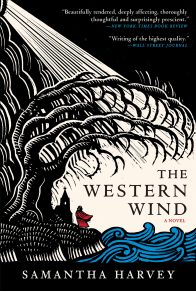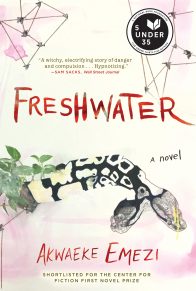Anjir and Zal are childhood best friends turned adults in love. The only problem is they live in Iran, where being openly gay is criminalized, and the government’s apparent acceptance of trans people requires them to surgically transition and pass as cis straight people. When Zal is brutally attacked after being seen with another man in public, despite the betrayal, Anjir becomes even more determined to carry out their longstanding plan for the future: Anjir, who’s always identified with the mythical gender-changing Tiresias, will become a woman, and they’ll move to a new town for a fresh start as husband and wife.
Then Zal vanishes, leaving a cryptic note behind that sets Anjir on a quest to find the other man, hoping he will lead to Zal. Stalking and stealing his way through the streets, clubs, library stacks, hotel rooms, and museum halls of Tehran—where he encounters his troubled mother, addict brother, and the dynamic Leyli, a new friend who is undergoing a transition of her own—Anjir soon realizes that someone is tailing him too. It quickly becomes clear that more violence may be the fastest route to freedom, as Anjir’s morals and gender identity are pushed to new places in the pursuit of love, peace, and self-determination.
Steeped in ancient Persian and Greek myths, and brimming with poetic vulnerability, subversive bite, and noirish grit, Medusa of the Roses is a page-turning wallop of a story from a bright new literary talent.
Praise for Medusa of the Roses:
A Publishers Weekly Writer to Watch
“A lurid summer read that oozes with sex, death and cinema . . . [Medusa of the Roses] checks all the boxes. It’s a taut story of doomed love set in Tehran and shot through with noirish imagist poetry . . . hard-boiled and hard to put down.”—Jim Ruland, Los Angeles Times
“Powerful . . . [Sinaki’s] unflinching and bold debut explores the chilling reality for his gay compatriots in Iran . . . Threaded throughout Medusa of the Roses are references to old Hollywood films – The Postman Always Rings Twice is particularly relevant – as well as allusions to Persian folklore and classical mythology . . . Violence permeates the novel, mirroring the brutal reality of an authoritarian regime . . . the loneliness of having to suppress your desire and identity is powerfully conveyed.”—Lucy Popescu, The Guardian
“Have you ever come across a close friend’s love letters? This is the feeling one gets while diving into the intimate world of Medusa of the Roses . . . [Sinaki] portrays this sentiment that the reader is only overhearing a conversation, a slice of gossip, or is over-the-shoulder-reading a love letter not just from Anjir to Zal, but from a writer to a myth . . . One can feel the immense impact of Old Hollywood films, Greek myth, and Persian cinema, poetry, and architecture, that hums right beneath the sentences of [Sinaki’s] debut novel. It is an artist’s story that glitters with the residue of a life lived in the forward aim of beauty as much as truth.” —Kyla D. Walker, Electric Literature
“Video artist Sinaki’s stunning debut follows two gay lovers struggling to survive in modern-day Tehran. In alternately gritty and sensual prose, Sinaki perfectly captures Anjir’s morbid state of mind and his inability to separate love from pain. The narrative teems with references to Greek mythology, Persian folktales, and Old Hollywood as Sinaki considers the psychological toll that living under an ever-present threat of death can take. This is a must.”—Publishers Weekly, Starred Review
“Invoking classic myths, Navid Sinaki’s sweetly sinister debut novel, Medusa of the Roses, conjures a pair of ill-fated lovers as timeless as Pyramus and Thisbe . . . Sinaki writes . . . with a blade’s edge . . . In Medusa of the Roses, every observation comes decorated with mordant humor . . . Its spellbinding story unfolds not as a myth retold but as a fresh legend for modern times.”—Dave Wheeler, Shelf Awareness (starred review)
“Medusa of the Roses is [a] blood-driven and melodic tale . . . [and] a stunning first book by Navid Sinaki . . . The story itself is captivating—both heartbreaking and tender, violent and brutal. But what draws the reader into the heart and mind of . . . the story [is its] remarkable poetry dripping from every sentence. It is a book with metaphor at its core: a novel from a writer who understands that the complexities of the human heart are often best shown through image.”—Beth Cochrane, The Skinny
“Sinaki’s prose is dense with sensory detail and mythological allusions . . . [a] memorable descent into love and betrayal in queer Tehran.”—Kirkus Reviews
“The compelling story and intriguing symbolism make it certainly worth a read.”—Michael Cart, Booklist
“It’s a gritty tale woven in with ancient Persian and Greek myths, fused into a debut novel so good you’ll skip all your summer days’ plans.”—Fleurine Tideman, Betches
“The compelling story and intriguing symbolism make it certainly worth a read.”—Booklist
“Navid Sinaki’s writing is really, really something. Reading Medusa of the Roses not only pleasures through its chaseable story and meticulously tuned characters, it offers the non-stop bedazzlement of some of the most intoxicating and yet exacting prose I’ve read in ages. It’s a rush of a novel, and honestly kind of perfect.”—Dennis Cooper, author of I Wished
“Very rarely does a book come along that you feel might save lives, including your own. In giving voice to the ultimate voiceless in Iran, Sinaki has written a witty and wild tale truly for the best of our beloved angels and devils. He has taken our shared cultures and done something none of us Iranian writers have managed: he gets to the heart of the damaged and damaging politics of our homeland by turning despair into art that’s so invigorating and thrilling, we quite nearly have a new genre. Medusa of the Roses is the most dynamic literary debut, certainly of the Iranian queer canon, I have ever read!”—Porochista Khakpour, author Sons & Other Flammable Objects and Tehrangeles
“Navid Sinaki flips noir on its head in this propulsive, twisting novel about creating identity against formative love in an oppressive society. Sexy, raw, and perfectly paced, Medusa of the Roses will get under your skin.”—Julia Fine, author of Maddalena and the Dark
“Medusa of the Roses is a beautiful, fast-paced melodrama, a campy, queer reimagining of mid-century noir set in Iran, bloody and poetic in equal measure.”—Kyle Dillon Hertz, author of The Lookback Window
“Feverish and atmospheric, Sinaki’s writing captures with great precision the visceral torment of love and all the havoc it wreaks. Anjir is a brooding, rueful narrator-cum-protagonist whose haunting, and at times knowingly camp, plight bursts forth from the page with cinematic bite.”—Andrés N. Ordorica, author of How We Named the Stars
“Medusa of the Roses is a violently beautiful story of poignant queer love and loss in Iran which never stops being charming and surprising. This thrilling novel manages to be both nightmarish and dreamlike in its devoted search for romantic love and gender fluidity. Sinaki also does a brilliant job of interweaving Greek and Persian mythologies throughout the modern myth he’s created – the myth of Zal and Anjir.”—Golnoosh Noor, author of The Ministry of Guidance
















